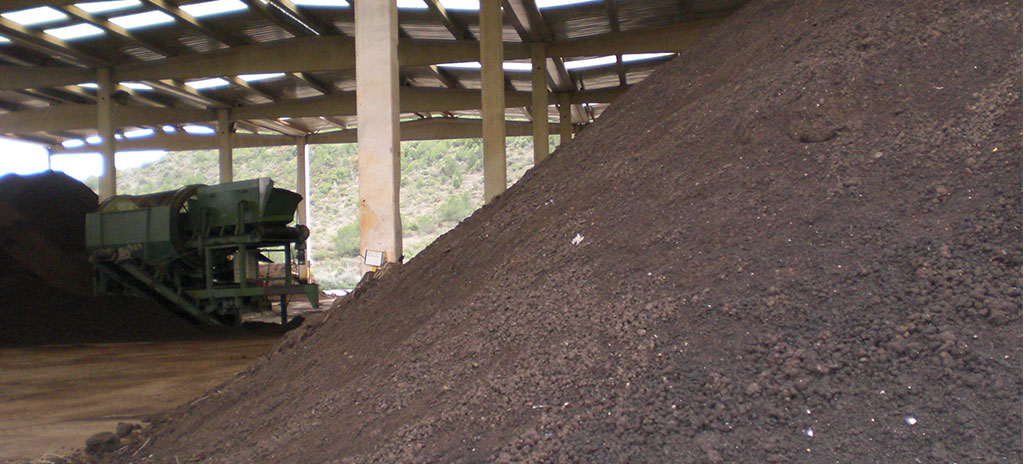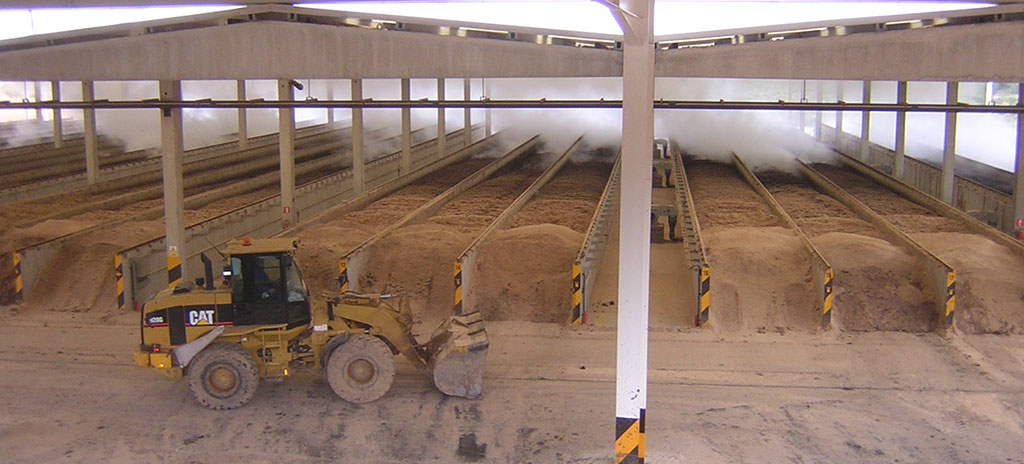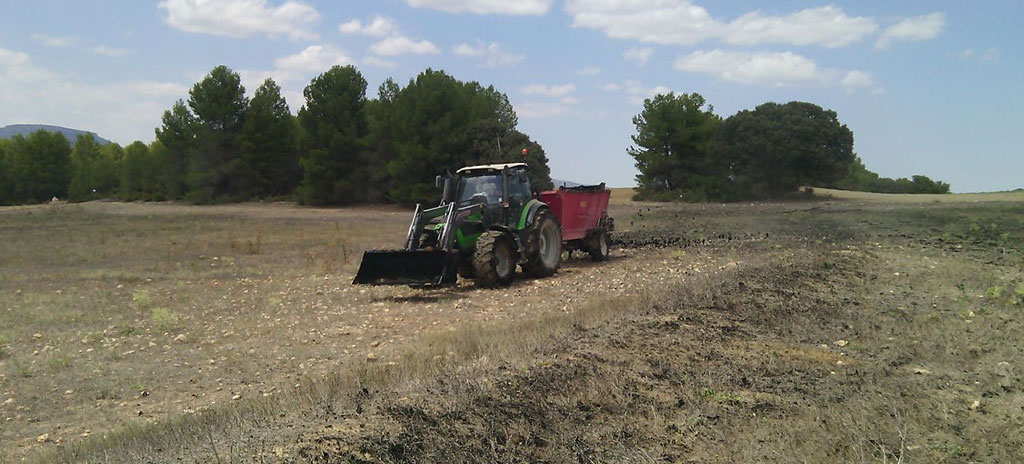


Composting
To resolve the environmental problem caused by the silt produced by the purification plants, the main alternative is composting.
Composing makes this silt more hygienic and stable. This process allows for evaluation of bio-solids and facilitates their re-use in agriculture. Currently, Global Omnium applies 143,000 tonnes of mud each year, which have been conveniently treated to improve the quality of the agricultural soil.
The composting of the muds allows us to:
- Stabilise the muds, reducing organic matter
- Increase the proportion of dry material, which facilitates is application in agriculture.
- Reduce the concentration of micro-organisms
- Evaluate the by-product generated in purification processes
- Minimise the environmental impact
The Global Omnium composting plant is located in the region of Calles (Valencia) with a design capacity of 30,000 Tm per year. This process is automated, producing a compost with an agricultural value that is superior to that of the original muds.
Agricultural application
The silt produced by the purification are an excellent organic modification for soil, providing organic material and therefore reducing the risk of desertification.
The group disposes of ‘specific’ agricultural machinery that allows us to apply mud to the soil quickly and efficiently, avoiding environmental impact. Currently, more than 3.500 Ha per year, the equivalent of 4,000 football pitches.
As well as complying with all applicable legislation, we will manage agricultors via an agricultural report, and we guarantee total traceability of the application via Web-SigPac tools designed by the group.
